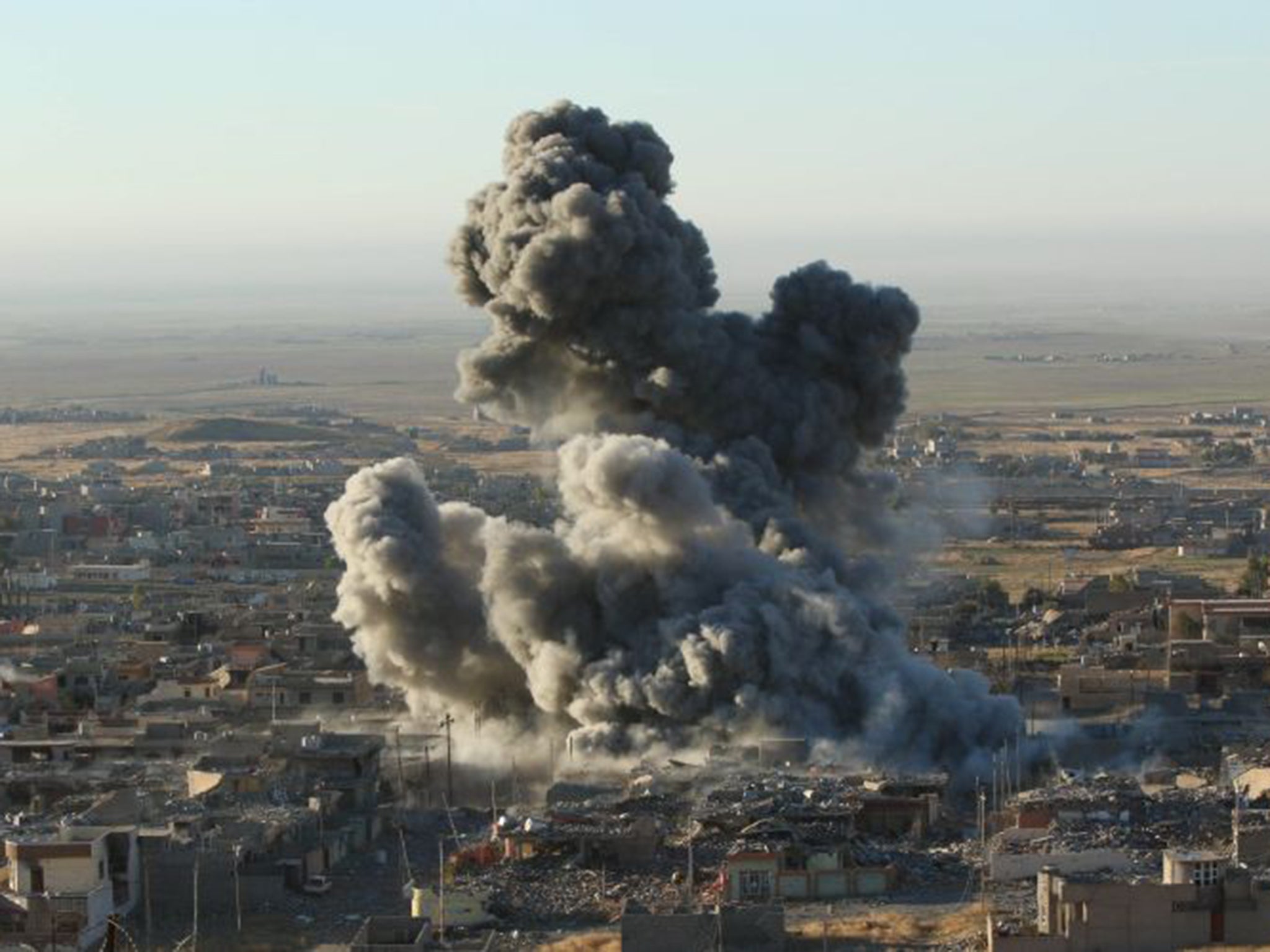Isis in Syria: France says it would be 'strange' if Britain didn't join bombing campaign
Sylvie Bermann said it was 'absolutely essential' that the UK joined military action in Syria

Your support helps us to tell the story
From reproductive rights to climate change to Big Tech, The Independent is on the ground when the story is developing. Whether it's investigating the financials of Elon Musk's pro-Trump PAC or producing our latest documentary, 'The A Word', which shines a light on the American women fighting for reproductive rights, we know how important it is to parse out the facts from the messaging.
At such a critical moment in US history, we need reporters on the ground. Your donation allows us to keep sending journalists to speak to both sides of the story.
The Independent is trusted by Americans across the entire political spectrum. And unlike many other quality news outlets, we choose not to lock Americans out of our reporting and analysis with paywalls. We believe quality journalism should be available to everyone, paid for by those who can afford it.
Your support makes all the difference.France would find it “strange” if Britain did not join it in bombing Isis in Syria, the country’s ambassador in London has said.
Sylvie Bermann said France and Britain had “always fought side-by-side” and it was “absolutely essential” that MPs backed David Cameron’s plan to extend RAF air strikes to Syria.
The Prime Minister set out the Government’s seven-point plan for defeating Isis in a 32-page response to the Foreign Affairs Committee, which had previously warned of grave concerns of bombing Syria without a plan on the ground.
Asked how important it is that Britain joins the coalition of countries carrying out air strikes against Isis targets in northern Syria, Ms Bermann told the Today programme: “It’s absolutely essential. It’s very important…we have always fought side-by-side and of course the UK has important capabilities.
“I think we received a lot of solidarity, support from the UK so It would be strange now not to participate in the fight because in fact, those people are planning attacks in in France, in Belgium, but probably also in London."
Mr Cameron needs to win over a number of Labour MPs to outweigh an estimated dozen Tory MPs who are still opposed to air strikes in Syria.
But the Prime Minister has insisted he wants to win a convincing mandate for action, which means that were Jeremy Corbyn to refuse to give a free vote to his MPs, the Government could fail to win a substantional majority.
Those in favour of action are understood to include the shadow Foreign Secretary Hilary Benn, Mr Corbyn’s deputy, Tom Watson, as well as his Justice, Education and Health spokespeople. Only three shadow cabinet ministers out of 31 voiced opposition to air strikes at the meeting.
But within hours of the meeting breaking up Mr Corbyn wrote to his party’s MPs warning them that he could not support the Prime Minister’s proposals because they would not protect Britain’s security and did not amount to a “coherent strategy” to tackle Isis.
It cast doubt on the prospect of Labour MPs to be given the freedom to vote how they want.
On Friday morning senior Labour MPs called on Mr Corbyn to quit over his handling of the issue.
The Shadow Cabinet will meet on Monday to make a final decision on its position for the vote, which is expected to be called by the Prime Minister on Tuesday or Wednesday next week.
Join our commenting forum
Join thought-provoking conversations, follow other Independent readers and see their replies
Comments